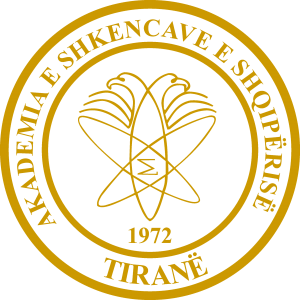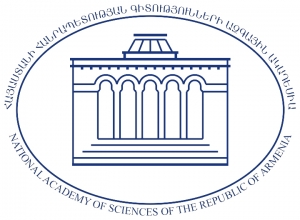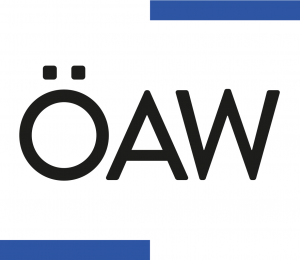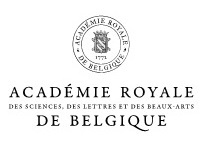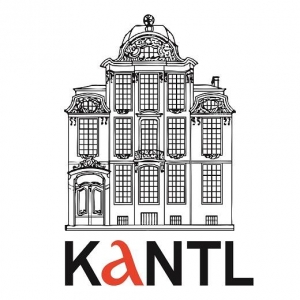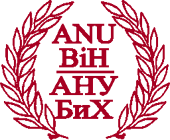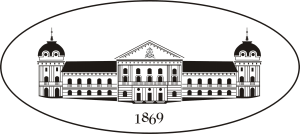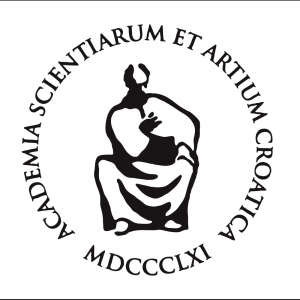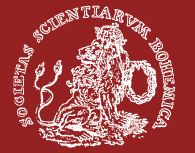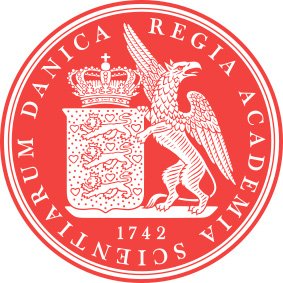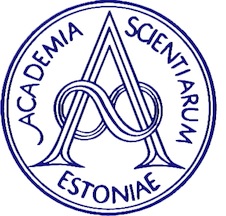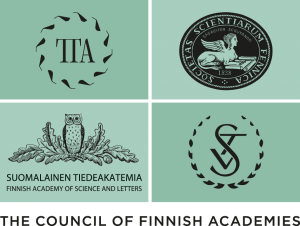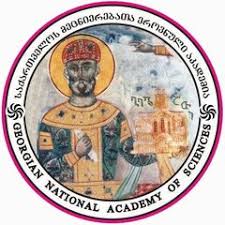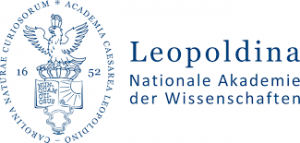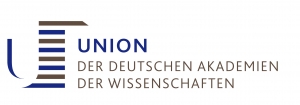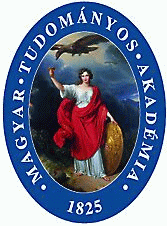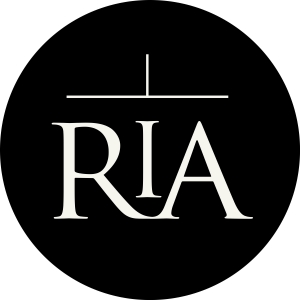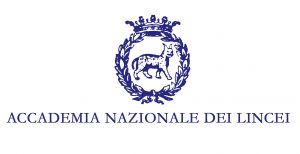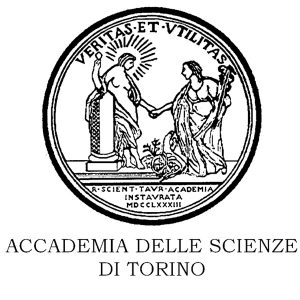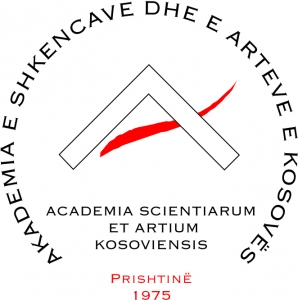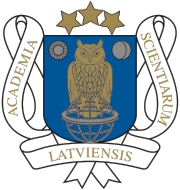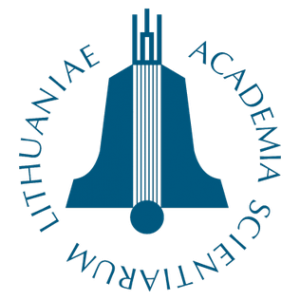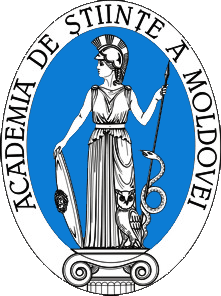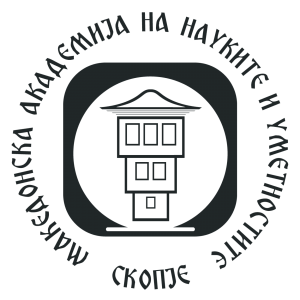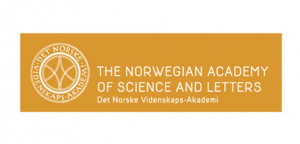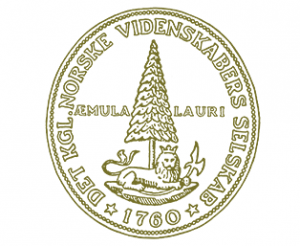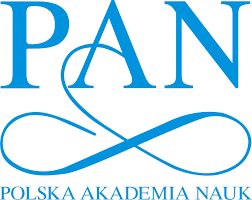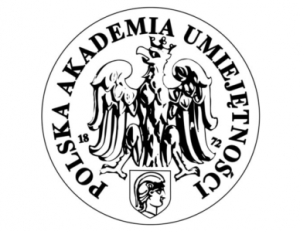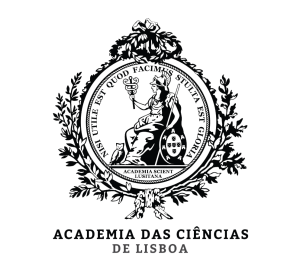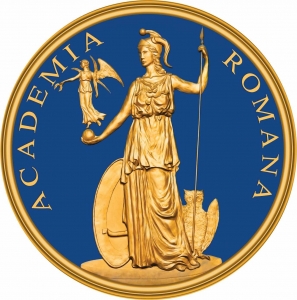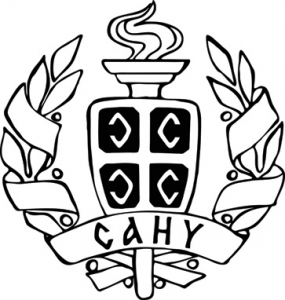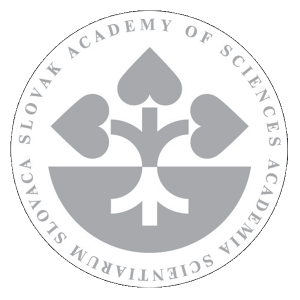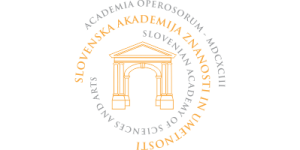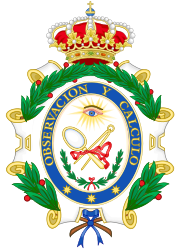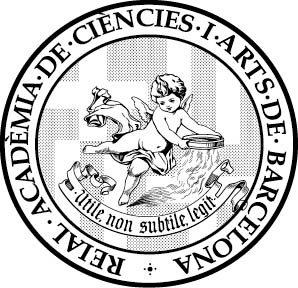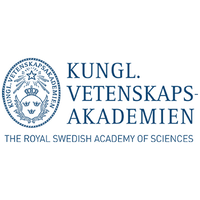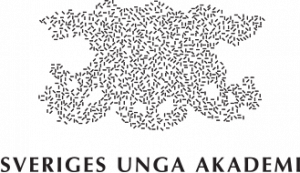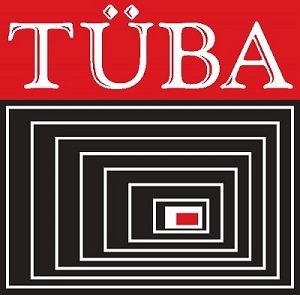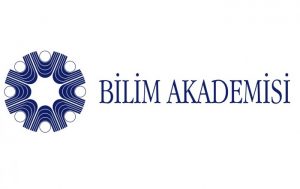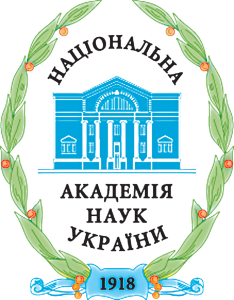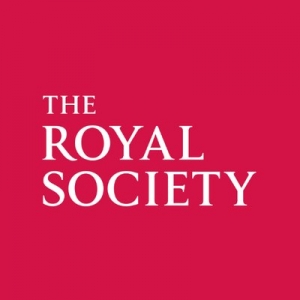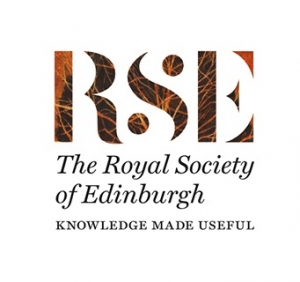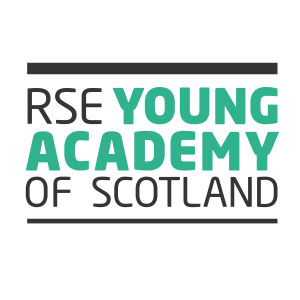MEMBER ACADEMIES
As the most comprehensive network of academies in Europe, ALLEA brings together nearly 60 academies from about 40 EU and non-EU countries.
Member Academies are self-governing bodies of distinguished scholars drawn from all fields of natural sciences, social sciences and humanities. They contain a unique human resource of intellectual excellence, experience and multidisciplinary knowledge dedicated to the advancement of science and scholarship in Europe and the world.
Albania

Contact information
Address: Fan Noli Square 7, Tirana, Albania
Website: www.akad.gov.al
About the Academy of Sciences of Albania
The Academy of Sciences of Albania (ASA), founded in 1972, is the most important science institution in the country. The ASA includes the most outstanding scientists – academicians – who work in research institute or centres, or other science organizations at home or abroad. It has 29 Regular Members, 11 Associated Academician Members and 26 Honorary Members. The ASA has 2 sections: the Section of Social Albanology Sciences and the Section of Natural Technical Sciences. Part of the structure are: the Unit of Technological Research and Innovation Projects, the Section of Foreign and Public Relations, the Scientific Library and Publications.
Armenia

Contact information
Address: 24, Marshall Baghramian Ave. 0019 Yerevan, Republic of Armenia
Website: www.sci.am
About the National Academy of Sciences of Armenia
The National Academy of Sciences of Armenia is the top scientific institution of the Republic, based upon centuries-old original fruitful historical, scholarly, cultural and educational knowledge and traditions of the Armenian Nation, it is called upon to consolidate the efforts by the scientists to do basic research in many fields of science, to identify and to reconsider the spiritual legacy of the Nation in order to effect national security as well as social and economic problems.
Austria

Contact information
Address: Austrian Academy of Sciences, Dr. Ignaz Seipel-Platz 2, 1010 Vienna
Website: www.oeaw.ac.at
About the Austrian Academy of Sciences
The Austrian Academy of Sciences (OeAW) is Austria’s central non-university research and science institution. Its statutory mission is to “promote science in every way”.
Founded in 1847 as a learned society, today the OeAW has over 770 members and 1,700 employees dedicated to innovative basic research, interdisciplinary exchange of knowledge and the dissemination of new insights with the aim of contributing to progress in science and society as a whole.
Belgium

Contact information
Address: Palais des Académies, rue Ducale 1, 1000 Bruxelles, Belgique
Website: www.academieroyale.be

Address: Koningstraat 18 - 9000 Gent, Belgium
Website: www.kantl.be
About the Royal Academy for Dutch Language and Literature
The Royal Academy for Dutch Language and Literature (KANTL = Koninklijke Academie voor Nederlandse Taal en Letteren), founded in 1886, promotes study, reflection and debate with regards to Dutch language and literature. The members of the KANTL share a great dedication to the Dutch language, in the Dutch-speaking territories and beyond, in all its expressions. The Academy is an advocate for the use of Dutch as a standard language and a promotor of Dutch literature in past and present. It intends to be a meeting place, a sanctuary for exchange and reflection with regards to the Dutch language, an independent think tank, with an eye for depth and nuance. The multidisciplinary composition of the Academy - academics, writers and other language lovers - guarantees a broad view on all aspects of the Dutch language.
The KANTL has three areas of activity:
1- Preservation, management, accessibility and enrichment of linguistic and literary heritage.
2- Reflection on the Dutch language and literature;
3- Connecting past and present; establishing the link with contemporary language and literature in a broad cultural context
The KANTL facilitates the translation of scientific research and heritage to a wider audience by organizing a broad range of cultural activities, seminars and literary festivals, and by awarding literary and scientific prizes. Every five years, the KANTL presents a dynamic canon of Dutch literature. Through its own research centre CTB (Centrum voor Teksteditie en Bronnenstudie, i.e. Centre for Scholarly Editing and Document Studies), it presents itself as an actor in the field of Digital Humanities.

Contact information
Address: Palace of the Academies, Rue Ducale 1, 1000 Brussels, Belgium
Website: www.kvab.be
About the Royal Flemish Academy of Belgium for Science and the Arts
The KVAB (Royal Flemish Academy of Belgium for Science and the Arts) is the Flemish Academy, a Royal Scientific Society founded in 1772, whose key task is to think and debate about matters of social, scientific and artistic importance in an open and interdisciplinary manner.

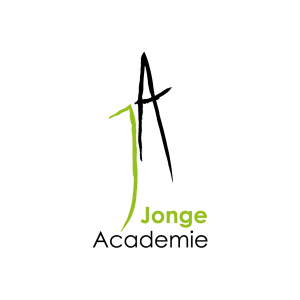 Contact information
Contact information
Address: Hertogstraat 1, 1000 Brussel, Belgium
Website: https://www.jongeacademie.be/
Bosnia and Herzegovina

Address: Bistrik 7, 71000 Sarajevo, Bosnia and Herzegovina
Website: www.anubih.ba
About the Academy of Sciences and Arts of Bosnia and Herzegovina
The Academy of Sciences and Arts of Bosnia and Herzegovina (ANUBiH), the highest scientific and artistic institution in the country, was founded by the Law on the Academy of Sciences and Arts of Bosnia and Herzegovina in 1966, under the terms of which the Scientific Society (founded 1951), and became an institution with the status of Academy. Pursuant to the provisions of the Law and Bylaws, ANUBiH is composed of six departments established in line with selected branches of the sciences and the arts. Each Department is headed by a Secretary, elected by Department members and ratified by the ANUBiH Assembly. The work of the Departments is coordinated by the Assembly and the Presidency of the Academy.
Bulgaria

Contact information
Address: 1 “15 Noemvri” Str.
Website: www.bas.bg
About the Bulgarian Academy of Sciences
The Bulgarian Academy of Sciences is the leading scientific, spiritual and expert center of Bulgaria. It conducts research, training and activities of national and international importance and solves problems related to the development of Bulgarian society and state.
The Academy has a consistent policy for the development of science and innovation as a condition for economic progress in the country. It is an active participant in the European Research Area.
Today, BAS comprises 42 autonomous scientific units and is an organization governed in accordance with democratic principles. The Academy employs about 3,000 scientists, accounting for about 15% of those engaged with science in Bulgaria. BAS produces about half of the scientific output in the country.
Croatia

Address: Zrinski trg 11. 10 000 Zagreb, Republic of Croatia
Website: www.hazu.hr
About the Croatian Academy of Sciences and Arts
The Croatian Academy of Sciences and Arts is the highest scientific and artistic institution in the Republic of Croatia. It was founded in 1861 by Bishop of Đakovo, Josip Juraj Strossmayer (1815–1905).
The Academy´s main tasks are to promote and organize scientific research, to develop artistic and cultural activities, to publish the results of scientific research and artistic creation, to make proposals and give opinions on the promotion of sciences and arts in the field which are of special importance to the Republic of Croatia and to develop international relations with other academies and scientific organizations.
The Academy is divided into nine departments. Within its structure it has scientific institutes of different scientific fields, as well as the library, the Strossmayer Gallery of Old Masters, Glyptotheque, the Croatian Museum of Architecture, Department for Prints and Drawings, the Archives, the Oriental Collection, Arboretum Trsteno and the Memorial Collection of Maksimilijan Vanka, Korčula.
The Academy has different categories of membership: regular members or fellows of the Academy (up to 160 members), associate members (up to 100) and corresponding members (up to 100 members). The elections for new members are held every two years.
Cyprus

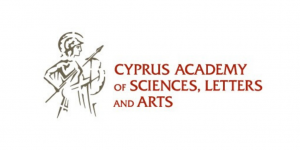 Contact information
Contact information
Address: P.O. Box 22554,
1522 Nicosia, Cyprus
Email: info@academyofcyprus.cy
About the Cyprus Academy of Sciences, Letters, and Arts
The Cyprus Academy of Sciences, Letters, and Arts was founded by "The Cyprus Academy of Sciences, Letters, and Arts Law of 2017", under which the Academy is established as a Legal Entity of Public Law based in Nicosia, Republic of Cyprus.
According to the Founding Law, the Cyprus Academy, the Highest Intellectual Institution of Cyprus in the Sciences, Letters, and Arts, is independent and completely autonomous Institution in its aims and its goals, and consists of 3 Sections: (i) Natural Sciences, (ii) Letters, and Arts (Humanities), and (iii) Ethics, Economic and Political Sciences.
Its main missions are to recognize and promote excellence in Science, Letters, and Arts, cultivate mutual interaction between the Sciences, the Letters and the Arts and establish a Permanent Dialogue between the Sciences and the Humanities.
The first body of the Cyprus Academy, elected on April 10 2019, currently consists of 16 Members, the 12 Permanent Members plus the four Provisional Permanent Members.
Czech Republic

Address: Národní 3, 117 20 Prague 1, Czech Republic
Website: www.avcr.cz
About the Czech Academy of Sciences
The Czech Academy of Sciences (CAS) was established by Act No. 283/1992 Coll. as the Czech successor of the former Czechoslovak Academy of Sciences. It is set up as a complex of 54 public research institutions. The Academy employs over 8,000 employees, more than a half of whom are researchers with university degrees.
The primary mission of the CAS and its institutes is to conduct research in a broad spectrum of the natural, technical and social sciences and the humanities. This research, whether highly specialised or interdisciplinary in nature, aims to advance developments in scientific knowledge at the international level, while also taking into account the specific needs of both the Czech society and the national culture. Researchers of the Academy institutes also participate in education, particularly through doctoral study programmes for young researchers and by teaching at universities as well. The Academy also fosters collaboration with applied research and industry. The integration of the Czech science into the international context is being promoted by means of numerous joint international research projects and through the exchange of scientists with counterpart institutions abroad.

Contact information
Address: Národní 3, 110 00 Prague 1, Czech Republic
Website: www.learned.cz
About the Learned Society of the Czech Republic
The Learned Society of the Czech Republic was established on May 10, 1994 at a festive session in the Hall of Patriots of Carolinum, the original seat of the Charles University, founded 1348 in Prague. Attending were 36 members of the Foundation for the Restoration of the Learned Society who became its Founding Members. New members of the Learned Society were elected at annual general assemblies as well as honorary members according to its regulations. There were significant changes of regulations accepted in January 2015 in which category of regular members was preserved, honorary members were changed to foreign members and emeritus membership was introduced. There are 103 regular, 49 foreign members and 14 emeritus members in the Learned Society at present. The executive body of the Learned Society is its Board which consists of eight regular members.
Pursuant to Act 83/1990, the Learned Society of the Czech Republic is a civic association. Its executive body is the Council of the Society.
Denmark

Address: H.C. Andersens Boulevard 35, 1553 Copenhagen, Denmark
Website: www.royalacademy.dk
About the Royal Danish Academy of Sciences and Letters
The Royal Danish Academy of Sciences and Letters (Kongelige Danske Videnskabernes Selskab)
was founded in Copenhagen on 13 November 1742 by King Christian VI when the King gathered together a group of experts to sort out his collection of medals. From this rather narrow interest, the Academy soon covered antiquities more generally, as well as mathematics, physics and natural history. Today it embraces all branches of science and scholarship and has about 250 Danish members and 250 foreign members.
Estonia

Contact information
Address: Kohtu 6, 10130 Tallinn, Estonia
Website: www.akadeemia.ee
About the Estonian Academy of Sciences
The Estonian Academy of Sciences was founded in 1938 as an association of top-level scientists and scholars with commitment and responsibility to advance scientific research and represent Estonian science nationally and internationally. The primary mission of the Academy is to assist in building a knowledge-based Estonia, fostering adaptation of new knowledge for economic growth and improvement of the quality of life in Estonia, enhancing public appreciation of science and scientific methods of thought.
Relying on the intellectual power of its Members, the Academy organises various activities in order to achieve its objectives. The Academy provides independent and highly professional scientific expertise and science-policy advice, promotes excellence in research, communicates and disseminates knowledge, enhances public awareness of science and scientists, encourages research co-operation at national and international levels.
Finland

Contact information
Address: Mariankatu 5A, 00170 Helsinki
Website: www.academies.fi/en
About the Council of Finnish Academies
The Council of Finnish Academies connects the Finnish and international fields of science. It is a cooperative body for the four science academies in Finland, working to promote high quality scientific research and the impact of research in society.
Georgia

Address: 52 Rustaveli Avenue, 380008 Tbilisi, Georgia
Website: www.science.org.ge
About the Georgian National Academy of Sciences
Germany

Contact information
Address: Jägerberg 1, 06108 Halle (Saale), Germany
Website: www.leopoldina.org
About the German National Academy of Sciences - Leopoldina

Address: Geschwister-Scholl-Straße 2, 55131, Mainz, Germany
Website: www.akademienunion.de
About the Union of the German Academies of Sciences and Humanities

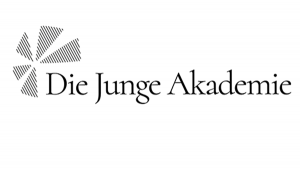 Contact information
Contact information
Address:
Die Junge Akademie an der Berlin-Brandenburgischen Akademie der Wissenschaften und der Nationalen Akademie der Wissenschaften Leopoldina
Jägerstraße 22/23
10117 Berlin Germany
Website: www.diejungeakademie.de
About the German Young Academy - Die Junge Akademie
Die Junge Akademie is the first academy of young academics worldwide. It offers prominent young scientists and artists from German speaking backgrounds interdisciplinary and socially relevant space for academic collaboration. The academy was founded in 2000 as a collaborative project of the Berlin-Brandenburg Academy of Sciences and Humanities and the German National Academy of Sciences Leopoldina. Since then, Die Junge Akademie has developed into a model organization and inspiration for similar initiatives worldwide. It has brought together outstanding young scientists from all disciplines as well as artistic fields in interdisciplinary projects. As the world's first academy for young scientists and artists, it promotes initiatives at the interface of science and society. In many projects, its members explore the potential and limits of interdisciplinary work. The aim is to develop innovative formats for the transfer of knowledge and to bring science and society more closely together.
Greece

Address: Odos Panepistimou 28, 10679 Athens, Greece
Website: www.academyofathens.gr
About the Academy of Athens
The Academy of Athens was founded with the Constitutional Decree of March 18th 1926, as an Academy of Sciences, Humanities and Fine Arts. The same Decree appointed its first Members, who were all eminent representatives of the scientific, intellectual and artistic circles of that era.
The general and overarching objective of the Academy of Athens, in accordance with its Founding Charter, is the cultivation and advancement of the Sciences, Humanities and Fine Arts, along with the communication of the Foundation and its Members with other Academies and fellow Academicians.
In fulfillment of its objective the Academy conducts scientific research projects and studies in the areas of agriculture, industry, shipping, national economy. Furthermore it issues consultations, proposals, it adopts decisions and judgments for the instruction and guidance of the bodies and authorities of the state.
Hungary

Contact information
Address: 1051 Budapest, Széchenyi István sqr. 9
Website: www.mta.hu
About the Hungarian Academy of Sciences
The Hungarian Academy of Sciences (MTA) is the oldest and greatest institution of Hungarian science. Its founder was Count István Széchenyi who on 3 November, 1825, during the Pozsony (Bratislava) National Assembly bestowed a year’s income of his estates towards the formation of a learned society. The formation of a Hungarian Academy – a Hungarian Learned Society at the time – was laid down in Law XI. of 1827. The Main Halls of the MTA, as designed by Prussian architect Friedrich August Schüler, were ceremoniously opened on 11 December, 1865.
The MTA is a public body functioning as a self-regulatory legal entity which carries out a national civic duty by practising, supporting, overseeing and representing science.
In order to support and further the cause of scientific research, the MTA maintains a network of full-time research personnel which in turn is a fundamental pillar of the country’s scientific life.

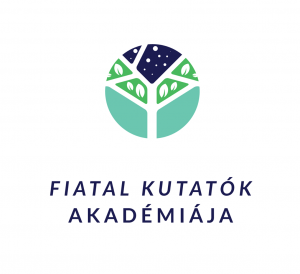 Contact information
Contact information
Address: Széchenyi István tér 9., 1051 Budapest, Hungary
Website: https://mta.hu/fka
About the Hungarian Young Academy
The Hungarian Young Academy (HYA) was established in 2019, and comprises 60 researchers representing various scientific disciplines, universities, and research institutes from around the country. A five-year membership is awarded to young researchers under 41 years of age on the basis of a complex selection procedure managed exclusively by the members of the HYA. In partnership with the Hungarian Academy of Sciences, the HYA represents Hungarian young researchers both on the domestic and international level, and organises numerous academic forums to support the professional development of young researchers. The HYA systematically collects and channels feedback from young researchers concerning the current science policy trends and decisions with special regard to the issues of female scientists, researchers with children, and researchers with disabilities. The HYA also offers mentoring services to young researchers applying for funding, and devotes significant attention to disseminating the results of young researchers’ scientific work and their main added value for the broader public.
Ireland

Address: 19 Dawson Street, Dublin, Ireland
Website: www.ria.ie
E-mail address: info@ria.ie
About the Royal Irish Academy
The Royal Irish Academy/Acadamh Ríoga na hÉireann champions research. It identifies and recognises Ireland’s world class researchers. It supports scholarship and promotes awareness of how science and the humanities enrich our lives and benefit society. It believes that good research needs to be promoted, sustained and communicated. The Academy is run by a Council of its members. Membership is by election and considered the highest Academic honour in Ireland.
Israel

Contact information
Address: Jabotinsky Road 43, Jerusalem, Israel
Website: www.academy.ac.il
About the Israel Academy of Sciences and Humanities
The Israel Academy of Sciences and Humanities, established by the Knesset in 1961, is an all-embracing body with 112 members in two sections. It is administered by a six-member Council headed by President and mandated to:
- promote scholarly and scientific excellence
- advise the government on scientific matters of national significance
- maintain contact with parallel bodies abroad
- ensure Israeli representation at international institutions and conferences
- publish writings calculated to promote scholarship and science
It has spearheaded major initiatives like the Israel Science Foundation, the National Council for Research and Development and membership in CERN, ESRF, etc. It undertakes assessments of scientific disciplines and studies of science policy issues.
Through 32 bi-national agreements the Academy promotes reciprocal scientific visits and coordinates international scientific workshops. It is Israel’s adhering member in major international scientific unions and organisations.
Italy

Contact information
Address: Via della Lungara 10, 00165 Rome, Italy
Website: www.lincei.it
About the Accademia Nazionale dei Lincei
The Accademia Nazionale dei Lincei, founded in 1603 by Federico Cesi, is the oldest scientific academy worldwide. The Academy promotes excellence through its Fellowship which included, among many other prestigious names, Galileo Galilei. The members are divided in two classes: one for mathematical, physical, and natural sciences; the other for social sciences and humanities. The Academy’s mission is to promote, coordinate, integrate and spread scientific knowledge.

Contact information
Address: Via Accademia delle Scienze 6.
Offices: via Maria Vittoria 3, 10123, Torino
Website: www.accademiadellescienze.it
About the Accademia delle Scienze di Torino
The Academy of Sciences of Torino was instituted in 1783 by Victor Amadeus III of Savoy. It was the national academy, first of the Kingdom of Sardinia and later of the Kingdom of Italy, until 1874, when the newly reconstituted Accademia dei Lincei in Rome took over as the official academy of the Italian nation.
Since 2000 the Academy has been a private institution. As defined in its by-laws, its role is to “contribute to scientific progress, supporting research and seeing to the publication of its results, contributing to the spread of knowledge through congresses, conventions, seminars, lectures and all other suitable means, and further by providing opinions and making proposals to public institutions and private organisations in its fields of competence”.
Today the Academy comprises about 400 members, consisting of Italian members, foreign members and corresponding members, divided into two Classes, “physical, mathematical and natural sciences” and “moral, historical and philological sciences”. The institution is headed by a presidential council, which organises its activities, and by the united assembly of the Classes, whose role is to approve the budget and elect those who hold the principal academic positions.
Kosovo

Address: Rruga Agim Ramadani 305, Prishtine, Republika e Kosovës
Website: www.ashak.org
About the Kosova Academy of Sciences and Arts
The Kosova Academy of Sciences and Arts was founded in 1975. The last Law on Kosova Academy of Sciences and Arts was adopted by the Parliament of the Republic of Kosova in 2016.
One of its aims is to develop cooperation with other institutions. It publishes regular, periodical and other editions in the field of sciences and arts; evaluates, stimulates and promotes scientific thinking and artistic creativity; organizes scientific meetings, conferences, exhibitions, concerts; promotes internal and international cooperation.
KASA has four Sections (Linguistics and Literature, Social Sciences, Natural Sciences and Arts).
The Assembly of KASA includes all its regular and corresponding members. It elects the Presidency (President, Vice-President, Secretary General and 4 Secretaries of Sections) for a 4-year mandate. New members are elected every third year.
KASA participates at different levels of international organizations: ALLEA, The Union of National Academies of South-East European Countries, Inter-Academic Network for Human Rights, International Human Rights Network of Academies and Scholarly Societies, IAP, Académie Internationale and other international bodies.
KASA has signed cooperation Agreements with the Albanian Academy of Sciences, Croatian Academy of Sciences and Arts, Slovenian Academy of Sciences and Arts, Austrian Academy of Sciences, The Royal Flemish Academy of Belgium for Science and the Arts, British Academy, Turkish Academy of Sciences, Académie Des Inscriptions Et Belles-Lettres, Bulgarian Academy of Sciences, Macedonian Academy of Sciences and Arts, Montenegrin Academy of Sciences and Arts etc.
Latvia

Address: Akademijas laukums 1, Riga 1050, Latvia
Website: www.lza.lv
About the Latvian Academy of Sciences
The Latvian Academy of Sciences (LAS), founded in 1946, is a derivative public person with autonomous competence in the state administrative system, a nationwide body, which embraces all fields of learning. Its mission is to advance scientific and scholarly endeavour in Latvia. The LAS represents Latvia’s science in worldwide and European non-governmental organisations and participates in global networks of the academies of sciences.
The Academy has Latvian and foreign members, as well as honorary members. Relying on the intellectual power of its members (393 members as of March 2014), elected for their eminence in research and publication, the LAS holds a variety of functions and activities: providing independent and highly professional scientific expertise and science-policy advice, promoting excellence in research, communication and dissemination of knowledge, encouraging research cooperation nationally and internationally
Lithuania

Contact information
Address: 3 Gedimino Pr, Vilnius 01103, Lithuania
Website: www.lma.lt
About the Lithuanian Academy of Sciences
The Lithuanian Academy of Sciences (LAS) was founded on January 16, 1941. In its activities, the Lithuanian Academy of Sciences is guided by its Charter ratified by the Seimas of the Republic of Lithuania and other legal acts. The Lithuanian Academy of Sciences is a budgetary institution that brings together the most distinguished Lithuanian scientists and foreign scientists whose academic activities are related to Lithuania. The LAS is an independent expert and consultant of the Seimas, the Government and its agencies on research and higher education, culture, social development, economy, environmental protection, health care, technology, and other issues.
The Academy is implementing collaboration agreements with 26 foreign academies and other research centres. The LAS is the founder of the Wróblewski Library; it publishes research proceedings, academic journals, and informational publications.
Moldova

Contact information
Address: 1 Stefan cel Mare bd., Chisinau, MD-2001, Republic of Moldova
Website: www.asm.md
About the Academy of Sciences of Moldova
The Academy of Sciences of Moldova (ASM) is a public institution of national importance that brings together personalities with outstanding achievements in the fields of research, innovation, and culture: titular members (academicians), corresponding members, honorary members as well as researchers, elected as members of the Scientific Sections of the Academy. The titular members and corresponding members of the Academy of Sciences are scientists and people of high civic standing, well-known specialists in the field, citizens of the Republic of Moldova, who have distinguished themselves by works of great theoretical or practical value and have contributed considerably to the development of national science and culture. Honorary members of the Academy of Sciences are prestigious personalities from the country and abroad, who have achieved remarkable results in science and culture, support the Academy of Sciences, actively participate in technical and scientific cooperation with organisations in the fields of research and innovation in Moldova.
The activities of the Academy of Sciences of Moldova are organised in three Scientific Sections: Life Sciences Section, Exact and Engineering Sciences Section and the Social, Economics, Humanities and Arts Section. The Scientific Sections bring together titular and corresponding members, as well as 45 members (researchers) from the specific fields of research, chosen by competition, for a period of 4 years. The Academy of Sciences is the strategic counsellor of the Government in the fields of science and innovation, realising the yearly report on the state of science in the country.
Montenegro

Address: Rista Stijovića 5, 81000 Podgorica
Website: www.canu.me
About The Montenegrin Academy of Sciences and Arts
The Government of the Republic of Montenegro founded the Scientific Society of Montenegro, on 23rd October 1950. The Society was active till 1956.
The Parliament of the Republic of Montenegro passed the Law on the Society for Science and Arts of Montenegro, on 12th October 1971. In compliance to the Law, the Registry Commission was formed, which on its session of 6th March 1973 reached the decision on election of the first members of the Society. The Constitutive Session of the Society for Science and Arts of Montenegro was held on 10th July 1973 year. The total number of the first elected members of the Society was 42, out of which 25 were full members (academicians) and 17 corresponding (foreign) members.
The Parliament of Republic Montenegro decided on 10th March 1976, to transform the Society of Science and Arts of Montenegro to The Montenegrin Academy of Sciences and Arts (MASA).
Netherlands

Contact information
Address: Het Trippenhuis, Kloveniersburgwal 29, NL-1011 JV Amsterdam
Website: www.knaw.nl
About the Royal Netherlands Academy of Arts and Sciences
The Royal Netherlands Academy of Arts and Sciences was founded in 1808 as an advisory body to the Dutch Government – a role that it continues to play today. The Academy derives its authority from the quality of its members, who represent the full spectrum of scientific and scholarly endeavour and are selected on the basis of their achievements. It is also responsible for fourteen internationally renowned institutes whose research and collections put them in the vanguard of Dutch science and scholarship.
North Macedonia

Address: Bul. Krste Misirkov 2, P.O. Box 428, 1000 Skopje, North Macedonia
Website: manu.edu.mk
About the Macedonian Academy of Sciences and Arts
The Macedonian Academy of Sciences and Arts, founded in 1967, is an independent scientific and artistic institution of the highest rank in the Republic of Macedonia. It promotes the advancement of sciences and arts and application of the most recent research methods and latest achievements in scientific knowledge. The Academy encourages, coordinates, organizes and conducts research and artistic activities. It is engaged in the following research areas: physics, chemistry, mathematics and mechanics, human medicine, molecular biology, agriculture, forestry, social sciences, humanities and arts.
Norway

Address: Drammensveien 78, 0271 Oslo, Norway
Website: www.dnva.no
About the Norwegian Academy of Science and Letters
The Norwegian Academy of Science and Letters was founded in 1857. It is a non-governmental, nationwide body that embraces all scientific disciplines. The Academy’s main objective is to advance science in Norway by initiating and supporting research, sponsoring meetings and conferences, awarding scientific prizes, contributing to science policy, and by acting in the interest of science in relation to political authorities and the general public. The Norwegian Academy of Science and Letters awards the Abel Prize in mathematics and the Kavli Prize in astrophysics, nanoscience and neuroscience.
The Academy is led by the presidium which consists of the President, the Secretary General and the Vice President. H.M. King Harald is Honorary President of the Academy.
On 1 January 2014 the Norwegian Academy of Science and Letters had altogether 474 Norwegian and 390 foreign members. The members are divided into two sections; Mathematics and Natural Sciences and Humanities and Social Sciences. Each section is divided into eight groups. Each of the two sections has its own board which together with the presidium constitutes the board of the Academy.

Address: Elvegata 17, 7012 Trondheim, Norway
Website: www.dknvs.no
About the Royal Norwegian Society of Sciences and Letters
The Royal Norwegian Society of Sciences and Letters was founded in Trondheim in 1760, and it is the oldest Norwegian scientific institution. The Society has enjoyed royal protection since 1767. The Society’s main objective is to promote and disseminate science. It is a non-governmental, nationwide body that embraces all scientific disciplines.
The Society is organized in an Academy and a Foundation with one common board, led by the President. The Academy serves as a traditional academy with prominent scientists as members. The Foundation supports scientific projects and scientific publications, and publishes the journal Skrifter (Transactions), which was founded in 1761. It also awards the Gunnerus Award in Sustainability Science.
The Academy has 800 Norwegian and foreign members. Members are divided into the Natural-Sciences Division and the Humanities Division. Each division has its own board, and the division leaders are on the Society’s board.
Poland

Address: Polska Akademia Nauk, Plac Defilad 1, 00-901 Warsaw, Poland
Website: www.pan.pl
About the Polish Academy of Sciences
The Polish Academy of Sciences is a state scientific institution founded in 1952. It functions as a learned society acting through an elected corporation of top scholars and as a research performing organisation via its numerous scientific establishments. It has also become a major scientific advisory body through its scientific committees. PAS is comprised of 69 research institutes and auxiliary scientific units (archives, libraries, museums, botanical gardens and foreign PAS centres).
The mission of the Academy is the development, promotion, integration and dissemination of science as well as contribution to the development of education and enrichment of national culture. The tasks of the Academy comprise in particular: research activities, presentation of opinions and programs related to science and its practical application, international scientific cooperation, education at PhD level, cooperation with other scientific and higher education institutions as well as with learned societies, issuing opinions on drafts of legal acts concerning science and higher education.

Address: Polska Akademia Umiejętności, 31-016 Kraków, ul. Sławkowska 17
Website: www.pau.krakow.pl/index.php/pl/
About the Polish Academy of Arts and Sciences
The Academy of Arts and Sciences was founded in 1872 as a result of the transformation of the Kraków Learned Society, in existence since 1815. The Academy served from the beginning as a learned and cultural society for the entire Polish nation. After the First World War the Academy was renamed the “Polish Academy of Arts and Sciences” (PAU) and became an independent, official representative of Polish learning.
The PAU was a founder member of the International Union of Academies (IUA). After the German occupation, the PAU continued its activities until 1952, when the authorities decided to take over its agencies and assets on behalf of the Polish Academy of Sciences in Warsaw, which was then being established. The PAU was able to resume its activities only right after the transformation of 1989.
The PAU has presently 6 Classes: Class I: Philology; Class II: History and Philosophy; Class III: Mathematics, Physics and Chemistry; Class IV: Natural Sciences, Class V: Medicine and Class VI: Creative Arts. There are also 33 Commissions, where most of the work is done.
As of June 2014, the PAU had 514 members, including 150 regular members, 162 corresponding members and 200 foreign members. There are also 2 honorary members.
Portugal

Address: Rua Academia das Ciências 19, 1249-122, Lisbon, Portugal
Website: www.acad-ciencias.pt
About the Academy of Sciences of Lisbon
With the consent of Queen D. Maria I and the support of Abbé Correia da Serra, the Duque Lafões founded the Lisbon Royal Academy of Sciences (ACL) on December 24, 1779. It adopted the maxima: NISI UTILE EST QUOD FACIMUS STULTA EST GLORIA (“If what we do is not useful the glory is vain”). Since 1834, the ACL has been housed in the convent of the St. Francis Order. The Noble Hall—decorated with paintings of Pedro Alexandrino on the ceiling—is home to one of the richest libraries in Portugal. The ACL’s mission is to provide advice on linguistic matters and subjects of national and international interest; network with world Academies; contribute to the information and knowledge society; and increase the role of Portuguese participation in globalism. The ACL’s objectives are the promotion of scientific research and dissemination of its results; stimulation and enrichment of culture; encouragement of Portugal’s history studies; collaboration on Education and Teaching; coordination of its actions with similar institutions in other Portuguese-speaking countries, European, and worldwide Academies; contribution to the Society of Information and knowledge to increase the Portuguese participation in globalism.
Romania

Contact information
Address: Calea Victoriei 125, Sector 1, Cod 010071, Bucureşti, Romania
Website: www.academiaromana.ro
About the Romanian Academy
The Romanian Academy is a symbol of national spirituality, a forum of recognition, and a space of fundamental research. Since its foundation in 1866, the Romanian Academy is functioning as a broad and active learned society; Its preoccupations embrace all domains of the arts, letters, and sciences, through which demonstrate that is a vibrant centre of scientific research and literary and artistic creation. As conceived by its founders, the Academy is meant to be an instrument of moral and intellectual cohesion for all Romanians.
Members of the Academy are active participants in 14 scientific sections: philology and literature; history and archaeology; mathematics; physics; chemistry; biology; geonomic sciences; engineering; agriculture and forestry; medicine; economy, law and sociology; philosophy, theology, psychology, and pedagogy; arts, architecture, and audio-visual; information science and technology. The sections co-ordinate research centres and institutes throughout the country.
The structures of the Romanian Academy cover the entire country; The headquarters is in Bucharest, the capital of Romania, and there are three regional branches in Iasi, Cluj-Napoca, and Timisoara. The Academy includes the oldest and the most extensive national library, the Romanian Academy Library, and the Romanian Academy Publishing House.
In more than a century and a half of continued activity, the Romanian Academy experienced both magnificent and dark periods. Since the fall of the communist regime, the Academy has known a period of restoration to and reinstatement in the vocation, dignity, and fundamental role that the institution had cultivated from its very beginning.
Serbia

Address: 35, Knez-Mihailova, 11001 Belgrade, Serbia
Website: www.sanu.ac.rs
About the Serbian Academy of Sciences and Arts (SASA)
The Serbian Academy of Sciences and Arts (SASA) is over 170-year-old institution. In its history are such distinguished names as Nikola Tesla, Mihailo Pupin, Milutin Milankovic and Ivo Andric. Members of the Academy have been prominent scientists, recognized and well known not only in the region, but in the entire world.
The work on scientific projects of the Academy is conducted within its Departments and Institutes. There are eight Departments, four of which are related to natural, technical and medical sciences, and four to the humanities, social sciences and arts.
SASA has a branch in the city of Novi Sad and two scientific centers in Niš and Kragujevac. Being situated in the very heart of the town of Beograd, surrounded by numerous faculties and cultural institutions, SASA plays an important role in the cultural life of this country. It offers the services of its Gallery of Arts, Gallery of Science and Technology, its Library – one of the richest in the country, its Archive and its regular musical programmes devoted to the promotion of young talents.
The Academy’s programmes focus on research projects carried out by members of the Academy and other researchers gathered around the Academy’s committees. International cooperation is considered as one of the main activities and program priorities of the SASA.
Slovakia

Contact information
Address: Stefánikova 49,814 38 Bratislava, Slovakia
Website: www.savba.sk
About the Slovak Academy of Sciences and Arts
On 2 July 1942 the Parliament of the Slovak Republic instituted Slovenska akademia vied a umeni (Slovak Academy of Sciences and Arts), which developed into a representative and, concomitantly, working institution fostering scientific scholarly research. During the post-World War II period the SAVU was transformed into Slovenska akademia vied [Slovak Academy of Sciences (hereinafter the Academy or the SAS as an abbreviation)]. Nowadays, the Slovak Academy of Sciences successfully presents itself nationally and worldwide through the results in basic and applied research. It consists of 69 organisations, of which 48 are budgetary and 21 are subsidised. The Academy publishes 57 scientific and professional journals and 8 yearbooks. There are 51 scientific and scholarly associations, societies and unions affiliated with the SAS, which operate in accordance with the Law on Civic Associations. The Assembly, the Scientific Council, and the Presidium are the Academy’s self-governing bodies.
Slovenia

Address: Novi Trg 3, pp 323, 1001 Ljubljana, Slovenia
Website: www.sazu.si
About the Slovenian Academy of Sciences and Arts
The Slovenian Academy of Sciences and Arts has the oldest roots of all scientific institutions in Slovenia. Its origins can be tracked back to the seventeenth century and to the Academia Operosorum, founded in 1693. A predecessor of our Academy, the ranks of this society comprised of the most eminent Carniolan churchmen and lay intelectuals, noblemen and bourgeoise. In the second half of the nineteenth century serious efforts were made to establish the Academy, but it materialized only in 1938 as a national institution with the nomination of the first eighteen ordinary members. Today, the Slovenian Academy of Sciences and Arts is the supreme national institution of sciences and arts and associates scientists and artists, who have been elected as its members for their outstanding achievements in the field of sciences and arts. SASA cultivates, encourages and promotes sciences and arts and, through its activities, contributes to the development of scientific thought and creativity in the arts.
Spain

Address: Calle de Valverde, 22, 28004 Madrid, Spain
Website: www.rac.es

Address: La Rambla, 115, 08002 Barcelona, Spain
Website: www.racab.es
About the Royal Academy of Sciences and Arts of Barcelona
The Royal Academy of Sciences and Arts of Barcelona was founded on the 18th of January of 1764 as a private literary society under the name of Experimental Physico-Mathematical Conference. By virtue of the Royal Order of the 7th of December of 1887, the Academy has its current name of Royal Academy of Sciences and Arts of Barcelona.
The Academy is an association of scientists and scholars covering various fields of Science and Arts and its applications. The number of permanent members is restricted to 75. The Academy aims at promoting and becoming a reference for the Catalan culture and society concerning pure and applied sciences and arts. Since its foundation in 1764 the guiding imperative for the Academy has been to recognize, preserve and encourage excellence, to promote science and its benefits, the dissemination of research results, and give independent expert advice to public institutions and society in general.
Its Archive and Library contain a documentary collection of nearly three centuries of high historical value. The Library, with more than a hundred thousand volumes, is one of the most important libraries in Spain in relation to the science of the second half of the 18th century. The Academy holds a valuable collection of old instruments, including the clock collection and the historical collection of astronomical, meteorological and seismological instrumentation and observations.

Address: Carrer del Carme, 47, 08001 Barcelona, Spain
Website: www.iec.cat
About the Institute of Catalan Studies
Founded in 1907, the ‘Institut d’Estudis Catalans’ is an academic and scientific institution whose aim is the promotion of knowledge and the advanced research. It has been a member of the International Academic Union since 1923 and of ALLEA since 2014. It is based in the city of Barcelona.
Amongst the several tasks carried out by the Institute as National Academy of Catalonia stand out the following:
- The Institute fosters the coordination, cultivation and diffusion of scientific research in the different areas of science and technology, as well as in the humanities and the social sciences.
- The Institute inspires diverse programs for the development of society, especially within its area of direct competence, and it advises the authorities and academic institutions on important issues of public concern.
- The Institute looks after the linguistic, lexicographic, syntactic and other aspects of the Catalan language, whose historical territories encompass Catalonia, Valencia, the Balearic Islands, and the enclave of Alguer in Sardinia. Catalan language and culture is therefore distributed over four European states: Spain, France, Andorra and Italy.
The Institute is composed of five Divisions. It has twenty-six affiliated associations, which cover most areas of human knowledge. The Catalan Academy regularly carries out research seminars and conferences, maintains scientific services for research, and is an active partner of several research centers, such as the Eduard Fontserè Geophysics Laboratory, the Catalan Nutritional Center, the Center for Mathematical Research and the Center for Ecological Research and Forestry Applications. Its lexicographical services include the official Dictionary of the Catalan Language and several other linguistic services. The Institute and its scientific associations has over 8000 active members. Forty journals and book series in science, technology and the humanities and social sciences are regularly published under its imprint.

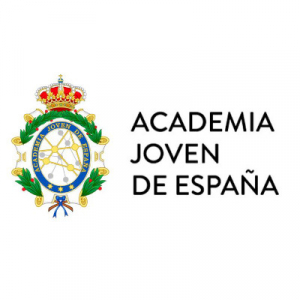 Contact information
Contact information
Address: C/Albasanz, 26-28 Despacho 0D12, 28037 Madrid
Website: https://academiajoven.es/
About the Young Academy of Spain
The Young Academy of Spain (Academia Joven de España – AJdE) was created by Royal Decree on 22 February 2019. Its foundational goal is to give a voice to young scientists and to create opportunities for professional development. Other objectives include promoting science and culture as a career option among young people; supporting exchanges between young researchers from different institutions, both national and international, as a way of intellectual and scientific enrichment; encouraging the development of new approaches to solving problems of national and international importance; contributing its own vision to, and receiving suggestions from, the Royal Academies of the Institute of Spain to promote intergenerational collaboration. The Young Academy of Spain actively works to create joint initiatives with other Young Academies and to support early career scientists worldwide.
Sweden

Address: Box 5622, S-114 86, Stockholm, Sweden
Website: www.vitterhetsakad.se
About the Royal Swedish Academy of Letters, History and Antiquities
Queen Lovisa Ulrika founded the Royal Swedish Academy of Letters, History and Antiquities on 20 March 1753 to promote research and other activities in the humanities, theology, law, and social science disciplines, as well as stewardship of cultural heritage sites.
The Academy’s aim is:
- to initiate and support international collaboration in the disciplines within the Academy’s field of activities;
- to publish academic writings in the Academy’s domain;
- to support deserving researchers and others who have furthered the objectives of the Academy;
- to issue statements in matters related to the domain of the Academy’s activities the Academy awards three major prizes and several smaller ones.
The Academy is a free learned society with no governmental funding and, has through multiple donations built up considerable capital.
The Academy supports extensive conference and symposium activities and funds projects of great academic value that are not given priority by governmental financiers.

Address: Box 50005, SE – 104 05 Stockholm, Sweden
Website: www.kva.se
About the Royal Swedish Academy of Sciences
The Royal Swedish Academy of Sciences was founded in 1739 and is an independent non-governmental organisation, whose overall objective is to promote the sciences and strengthen their influence in society. The Academy promotes science of the highest quality by fostering development and innovation in Swedish research. It enhances the status of science in society by drawing attention to key social issues, examining them in scientific terms and communicating the results, and joins in cooperation on global issues, with the aim of being an international scientific proponent of sustainable development.
A knowledge-based society that prioritises education, research and innovation has the best chance of success when encountering challenges.

Address: c/o The Royal Swedish Academy of Sciences, Box 50005, SE-104 05 Stockholm, Sweden
Website: www.sverigesungaakademi.se
About the Young Academy of Sweden
The Young Academy of Sweden is an interdisciplinary academy for a selection of the most prominent younger researchers in Sweden. The academy is an independent platform that provides young researchers with a strong voice in the policy debate and that promotes science and research, often focusing on children and young adults. Within the academy younger researchers meet across university and disciplinary boundaries. The Academy was founded in 2011 at the initiative of the Royal Swedish Academy of Sciences and has between 35–40 members elected for five years.
The Young Academy of Sweden's operations is run by a Chief Executive Officer and a secretariat in the halls of The Royal Swedish Academy of Sciences (RSAS), Stockholm, Sweden.
Switzerland

![]()
Contact information
Address: House of Academies, Laupenstrasse 7, P.O. Box, 3008 Bern, Switzerland
Website: www.swiss-academies.ch
About the Swiss Academies of Arts and Sciences
The Swiss Academies of Arts and Sciences is the association of the Swiss Academy of Sciences (SCNAT), the Swiss Academy of Medical Sciences (SAMS), the Swiss Academy of Humanities and Social Sciences (SAHS) and the Swiss Academy of Engineering Sciences (SATW) as well as the two Centres of Competence for Technology Assessment (TA-SWISS) and Dialogue (Science et Cité). The association comprises the largest scientific network in Switzerland with over 100,000 people, organised around 154 professional and member societies, 132 committees, working groups and boards of trustees as well as 29 cantonal societies.
As independent platforms, the academies unite and network the various actors of the scientific community and engage in dialogue with society as part of their core mission. Through inter-institutional cooperation within the scientific community, the academies promote the development of new perspectives and support the flexibility of content that is necessary for the continuous evolution of an innovative knowledge landscape. The transdisciplinary integration of research is of particular importance in order to meet upcoming challenges. In this context, the Swiss Academies of Arts and Sciences concentrate their efforts on the core mission ‘science and society’ with the strategic priorities digitalisation, health and sustainable development for the years 2021-2024.
Türkiye

Address: Turkish Academy of Sciences (TÜBA)
Bayraktar Mahallesi
Vedat Dalokay Caddesi, 112
Postal Code: 06670
Çankaya / Ankara / Türkiye
Website: www.tuba.gov.tr
About the Turkish Academy of Sciences
The Turkish Academy of Sciences (TÜBA) is an autonomous apex body for the development and promotion of science in Türkiye. The origins of the Academy go back to the Ottoman society called the “Society of Scholars, which was founded in 1851. TÜBA covers all scientific fields, which are grouped under the following three categories, basic and engineering sciences, health and life sciences, and social sciences and humanities. TÜBA is committed to contributing to the promotion of scientific research by organizing specialized working groups, offering grants and awards, preparing, and supporting the preparation of scientific reports, as well as by collaborating with sister academies all around the world.

Address: Hasfırın Caddesi, Sinan Pașa İș Merkezi, Kat 4, No:1 Beșiktaș, 34353 Istanbul, Türkiye
Website: en.bilimakademisi.org
About The Science Academy
The Science Academy (Bilim Akademisi) was established on November 25, 2011 in Istanbul as an independent non-governmental organization to promote, practice and uphold the principles of scientific merit, freedom and integrity.
As all such academies across the world, Science Academy is an institution which defends the principles of scientific merit, freedom and integrity independently of governments’ policies. Like any esteemed academy, we are here to bring together the most accomplished scientists of our country within and around the independent Science Academy in order to promote and preserve scientific excellence, scientific methods, traditions and procedures, as well as scientific freedom and integrity, in brief, to represent and sustain the spirit of science.
Ukraine

Address: Ul. Vladimirskaya 54, 01601 Kiev, Ukraine
Website: www.nas.gov.ua
United Kingdom

Address: 10-11 Carlton House Terrace, London SW1Y 5AH, United Kingdom
Website: www.thebritishacademy.ac.uk
About the British Academy
The British Academy is the UK’s national body for the humanities and social sciences – the study of peoples, cultures and societies, past, present, and future. The British Academy’s purpose is to inspire and support high achievement in the humanities and social sciences throughout the UK and internationally, and to promote their public value. We have three principal roles:
- A Fellowship of distinguished scholars from all areas of the humanities and social sciences, elected by their peers, that facilitates the exchange of knowledge and ideas and promotes the work of our subjects.
- A Funding Body that supports the best ideas, individuals and intellectual resources in the humanities and social sciences, nationally and internationally.
- A Forum for debate and engagement that stimulates public interest and deepens understandings, that enhances global leadership and policy making, and that acts as a voice for the humanities and social sciences.

Address: The University Registry, King Edward VII Avenue, Cathays Park, Cardiff CF10 3NS
Website: www.learnedsociety.wales
About the Learned Society of Wales
The Learned Society of Wales is the national academy for arts and sciences. Our Fellowship brings together experts from across all academic fields and beyond. We use this collective knowledge to promote research, inspire learning, and provide independent policy advice.

Address: 6 – 9 Carlton House Terrace, London SW1Y 5AG, United Kingdom
Website: www.royalsociety.org
About The Royal Society
The Royal Society was founded in 1660, and its mission is to recognise, promote and support excellence in science and to encourage the development and use of science for the benefit of humanity.
The Society is an independent self-governing Fellowship of the UK’s and the Commonwealth’s most distinguished scientists and elects Fellows and Foreign Members from all over the world based on the excellence of their science. The Fellowship is made up of approximately 1600 Fellows and Foreign Members.
As a national academy, the Royal Society represents the UK and Commonwealth and collaborates with international partners to advocate for science and its benefits at a national and global level. It provides authoritative and independent advice on matters of science that support the public good, including policies that promote excellent science and scientific issues that inform public policy.
The Society’s strategic priorities are:
- promoting excellence in science
- supporting international scientific collaboration
- demonstrating the importance of science to everyone

Address: 22-26 George Street, Edinburgh, EH2 2PQ, Scotland, United Kingdom
Website: www.rse.org.uk
About The Royal Society of Edinburgh
The Royal Society of Edinburgh (RSE) is an educational charity, registered in Scotland, operating on a wholly independent and non-party-political basis and providing public benefit throughout Scotland.
We were established in 1783 and since then have drawn upon the considerable strengths and varied expertise of our Fellows, of which there are currently around 1600, who are based in Scotland, the rest of the UK and beyond.
Unlike similar organisations in the rest of the UK, our Fellowship includes people from a wide range of disciplines – science & technology, arts, humanities, social science, business and public service. This breadth of expertise makes us unique in the UK. The time which our Fellows spend in supporting and enabling the delivery of our activities is an exceptional free resource, the annual public value of which is in excess of £0.7 million.

Address: The Royal Society of Edinburgh, 22-26 George Street, Edinburgh, EH2 2PQ, Scotland, United Kingdom
Website: www.youngacademyofscotland.org.uk
About the Young Academy of Scotland
The Young Academy of Scotland brings together innovative young professionals young professionals from across the arts, business and industry, government, the public sector, research and academia, the third sector and beyond to work together to benefit Scotland and the world.
By sharing our knowledge and practical expertise, we investigate pressing social issues, inform public debate, amplify marginalised voices, and drive transformational change. We do this through a wide range of interdisciplinary projects, led by our members. In our work, we always seek to be creative, collaborative, and evidence-based, and our members grow rapidly as leaders as well as citizens during their time with us.
The Young Academy of Scotland was established by the Royal Society of Edinburgh in 2011 as part of a growing movement of national young academies worldwide.

